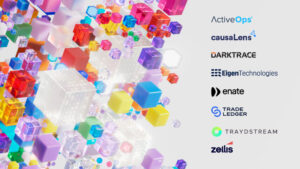
How to create a great employee experience

Imposter syndrome is a real thing
It can be incredibly daunting joining a large organisation like Microsoft. Imposter syndrome definitely starts to settle in when you first arrive at your new office, especially when you’re early in career. I don’t think I really understood what my friends and family meant when they told me not to worry; that a fresh graduate would bring a fresh pair of eyes and a new perspective. After all, why would my opinion matter over someone who has way more experience than I do?
After settling into my role, I now understand what they meant and I’m proud to say that I’ve been proven wrong. My opinions and thoughts are valued in the same way as my co-workers’. Having a diverse team where you all see things from different perspectives and are able to challenge ideas and come up with new solutions is how you’ll get the most value from your team. At Microsoft, we have a culture of ‘come as you are, do what you love’. And I’ve never felt more welcome.

Microsoft’s commitment to building a talent pipeline in the UK
Microsoft has an inclusive and collaborative approach that is incomparable to other companies I’ve heard of. We have several w
omen in senior leadership roles, from our UK CEO, Cindy Rose, to our UK COO, Clare Barclay. There’s a big focus on recruiting those who are early in career, giving them a kickstart into the world of work. And we do some incredible work to build the talent pipeline in the UK by encouraging young students to pursue STEM careers through our Digital Skills programme and events like DigiGirlz. Since 2015, the representation of women in tech roles has increased by 3.1 percentage points, and by 2.2 percentage points in leadership roles. Addressing the skills gap in the UK and ensuring we get more women in technology and leadership roles is everybody’s responsibility. It starts with embedding the commitment into schools, your organisation’s culture, and your hiring strategy.
Trust and flexibility
They really mean it when they say they want to empower everyone to achieve more. Being in the company for less than six months, I’ve felt first-hand the commitment Microsoft gives to new hires, both in terms of training and the amount of responsibility and trust bestowed upon you. Whilst it can be slightly scary at times, it’s incredible to be given the flexibility and freedom to work how you work best, whether that’s at home or in the office. It does wonders for employee engagement too.

Your colleagues play an important role
 It’s reassuring to know that I’m not the only one who had doubts when starting my role too. Speaking to a few colleagues, they also had a few doubts too like:
It’s reassuring to know that I’m not the only one who had doubts when starting my role too. Speaking to a few colleagues, they also had a few doubts too like:
- Not being able to meet high expectations
- Technology being a man’s world
- Being too young or inexperienced
It’s important to be able to acknowledge when you’re out of your depth or don’t have the experience so you can ask for help when you need it. I’m also now able to identify where I can add value. It really helped having access to such a great support system through colleagues to help me along the way, too.
It’s been such a whirlwind of emotions and experiences, but the longer I’m exposed to the working life at Microsoft, the more I’m thinking that this is the right place for me. The culture of ‘helping others to be successful’ has really helped me expand my skills and feel confident in front of my clients and colleagues. I think that’s really enabled me to have a great start.
Creating a positive employee experience
Based on my experience, here’s a few tips for how you can give your employees a positive experience to help them upskill and start delivering value at a much faster rate, whether they’re new to role and going through an onboarding plan, or if they’re current employees preparing for the future AI-enabled workplace.
Consider having a flexible working policy
Giving your employees the flexibility to work the way they work best will help them maintain a much more positive work-life balance. Not everybody has the same working style and what works for one employee won’t be best for another. Some people might work best in the office where they are able to have an open, informal discussion with their colleagues to bounce ideas around. Others might prefer to work from home one day a week to give them the focus time they need, or they might thrive with the background buzz in a café over lunchtime. You’ll likely find that you don’t sit in one bucket either and your preferred working style may shift depending on which projects you’re working on. Having the right tools enables me to be productive whenever and wherever I am; tools like Teams, Yammer, and Workplace Analytics

Prioritise mental and physical wellbeing

Our working schedule doesn’t define who we are and we all have a life outside of work with personal commitments that we need to meet too. Being mindful of that and giving your team the time to relax and unwind will result in happier, more engaged employees, which ultimately delivers better outcomes for your business. Make sure you encourage your employees to use their annual leave and schedule well-deserved breaks. You could perhaps consider offering a subsidised gym membership too. At Microsoft we have a wellbeing centre onsite with a doctor, cognitive therapy, and a gym; this has a great impact on both physical and mental health, resulting in less sick days and higher productivity levels. Think about the impact this could have on employee recruitment and retention too, particularly when we’re faced with a war for talent. The 2018 CIPD Health and Wellbeing at Work report revealed the main benefits of investing in health and wellbeing to be better employee engagement (44%), a healthier and more inclusive culture (35%) and lower sickness absence (31%).
Create a culture of lifelong learning

As we prepare for an AI-enabled world, it’s important that we all have the right skillset to work with technology to help us all achieve more. I consider myself truly lucky that I’ve been able to start my career at an organisation which is truly committed to supporting the workforce of the future, encouraging us all to complete regular training courses so we can futureproof our skills and become lifelong learners. Employees need time to work through their own personal development plans and leverage some of the resources that are available through our digital skills programme to help them increase their digital literacy and prepare for the future of work.
Through a nurturing early in career programme, I’m being equipped with lifelong skills and the desire to continue to grow and achieve the best for myself, my co-workers, our customers, and the world. I consider myself to be extremely lucky to be part of an organisation which puts so much focus and emphasis on their employee experience.
The key is to increasing employee engagement in your own organisation is simple – it starts with creating the right culture.
Find out more
[msce_cta layout=”image_center” align=”center” linktype=”blue” imageurl=”https://www.microsoft.com/en-gb/industry/blog/wp-content/uploads/sites/22/2019/01/Employee-experience-e1547630160397.jpg” linkurl=”https://www.microsoft.com/en-gb/office/employee-engagement/” linkscreenreadertext=”Improve your employee experience” linktext=”Improve your employee experience” imageid=”6130″ ][/msce_cta]
About the Author
Chessa Estuya is a Technical Account Manager in Unified Support – Public Sector where she enjoys helping customer with their digital journeys and achieving their business goals through the use of Microsoft technology and services. She is passionate about encouraging STEM careers for girls via DigiGirlz as well as blogging, vlogging, and being involved with the Unified sector newsletter.




